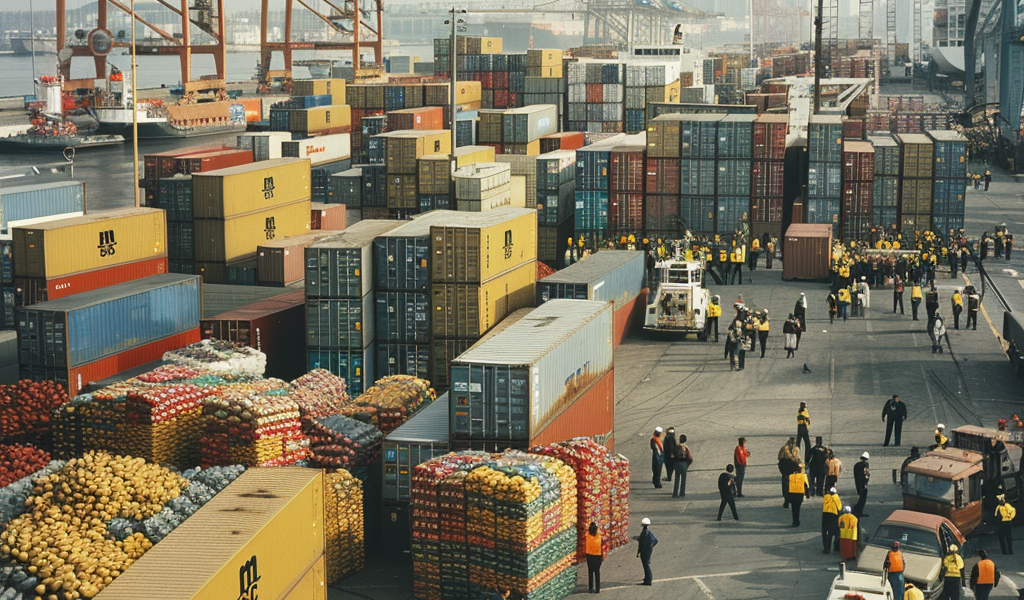As a significant labor dispute unfolds, thousands of dockworkers across major ports from Maine to Texas have initiated a strike, raising concerns about potential impacts on consumers and the economy. This labor action, stemming from ongoing contract negotiations between the International Longshoremen’s Association (ILA) and the United States Maritime Alliance (USMA), has the potential to disrupt supply chains just as the holiday shopping season approaches.
The dockworkers’ strike is affecting ports that collectively handle over half of the cargo imported into the United States. Approximately 45,000 workers are directly involved in the strike, but the ripple effects could extend to over 105,000 additional workers who may face temporary job losses, according to estimates from Oxford Economics. The economic implications of this strike are substantial, with a JPMorgan analysis projecting potential losses of $3.8 billion to $4.5 billion per day.
In response to the situation, the White House has stated that President Biden and Vice President Kamala Harris have been briefed on the strike’s implications. Officials have indicated that, at this time, the expected impact on consumers—particularly in critical areas such as fuel, food, and medicine—remains limited. However, the ongoing nature of the strike raises questions about how long this situation can be sustained without affecting broader consumer markets.
While some companies have taken proactive measures by redirecting shipments to West Coast ports or shipping products earlier to avoid disruptions, many industries may still face significant challenges if the strike continues. Jonathan Gold, vice president of supply chain and customs policy at the National Retail Federation, highlighted that even a one-day port shutdown could lead to recovery times of three to five days, emphasizing the fragility of supply chains.
Among the sectors most likely to feel the immediate effects of the strike are those dealing with perishable goods. Grocery stores, which have limited capacity to store items that have a short shelf life, may experience shortages in products such as bananas, mangoes, and meats. The American Farm Bureau Federation (AFBF) has noted that the affected ports are responsible for handling 75% of the country’s banana imports. Additionally, the strike could impede exports for agricultural producers, such as soybean farmers, who are anticipating a record harvest.
Some sellers are exploring alternative transportation methods, such as air freight, to prevent spoilage of perishable goods stranded at sea. However, the high costs associated with air transport and the limited volume of goods that can be shipped this way may lead to increased prices for consumers. Fortunately, the Department of Agriculture has indicated that non-containerized bulk items, such as grains, are unlikely to be significantly affected, and they do not expect notable changes in the prices or availability of food products overall.
In addition to perishables, the alcohol industry is also bracing for potential disruptions. Beer, wine, and spirits could see supply chain challenges as the strike continues. As these products are often stored in large quantities at ports before distribution, delays in shipments could lead to shortages in retail locations.
Consumer goods, particularly those that rely on timely delivery, may also experience delays, affecting everything from furniture to electronics. As the holiday shopping season approaches, retailers are concerned about their ability to meet consumer demand amid these disruptions.
As the situation develops, stakeholders across various industries are closely monitoring the strike’s progress and its potential implications for consumers and the economy. The ongoing negotiations between the ILA and USMA will be critical in determining how quickly operations can return to normal and how the supply chain can recover from this significant labor action.





